Audio Version Of The Blog – 5/19/22
Listen to an Audio Version of the Blog
Download:MP3 Audio

Listen to an Audio Version of the Blog
Download:MP3 Audio
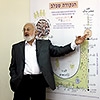 Question: What is the spiritual root of the number “10”?
Question: What is the spiritual root of the number “10”?
Answer: The spiritual root of the number 10 is that after 10 degrees the root of this calculus is revealed. Therefore, the essence of the attitude of the Creator to the creation, and vice versa, is manifested in the ten. In other words, it is necessary to go through 10 degrees from the creation to the Creator and from the Creator to the creation in order for one to feel the other.
Question: How is the number 10 related to the four-letter name of the Creator “Yod-Hey-Vav-Hey”?
Answer: Ten or four are the same. If we briefly reveal the quality of the Creator and the quality of creation, then the relationship between them can be combined into the four-letter name of the Creator, that is, into four stages, or they can be expanded and explained in 10 stages. But practically it is the same thing.
[297699]
From KabTV’s “Spiritual States” 5/10/22
Related Material:
The Ten Sefirot – The Foundation Of The Creation
The Ten Sefirot Are The Creator’s Attributes
“Buy” The Qualities Of The Creator
Medium published my new article “Buffalo Massacre — a Reflection of Our World”

This Saturday, a man went into a Tops Friendly supermarket in Buffalo, NY, and shot ten people dead in what appears to be a racially motivated crime. This massacre, the latest in an endless stream of violence, is a reflection of our world. Brutality is engulfing not only the United States, but the entire world. There is senseless killing in Europe, senseless killing all over the Middle East, and in Africa. Even where there isn’t senseless killing, there is abundant, systemic abuse of people, from modern slavery through human trafficking to abuse of power. At the end of the day, it is only people who make other people miserable. If we could only change our ill-will toward each other, we would change the world.
How many times have our parents told us to be nice to others, to play nice, to be kind? And how many times were we actually good because they told us to? Just as children often hold on to their toys and do not share them with anyone, we are becoming increasingly child-like egoists in our behavior.
We were not always that selfish. Previously, people from the same family, and even from the same village, truly felt that they belonged to one another. There may have been struggles over social statuses, but there was no desire to humiliate for the sake of degrading others. Today, even siblings often take pleasure in humiliating one another.
The human race is constantly evolving. The more it develops, the more people are learning that they are governed by egoism, and that it is driving us all into a chasm. On the one hand, everyone wants to live in a nice neighborhood with nice and quiet people around. On the other hand, our own nature is creating an environment where we cannot trust our co-workers, our friends, or even our families.
The good news in all this negativity is that now that it is out in the open, we are realizing who we really are, and this is the first step toward correction. We have come to a state that people cannot stand the existence of people they dislike, for whatever reason, so they pick up arms and shoot them.
And what is true of people, is also true of nations — between nations and within nations. They want to control each other, oppress each other, and dominate each other.
But we are in a different time now. What worked before will not work now on any level — individual, social, national, or international. Today, only those who want to help and support others will succeed. Nations and people who oppress, bully, and violate others will fail and fall.
These days, those who want to succeed must learn that our mutual dependence requires that we become considerate of others. Even if we do not like others, the simple realization that if I am inconsiderate, it will hurt me, should be enough to change our behavior toward others. Following our actions, our hearts will change, as well, but we should not expect this from the very beginning. If not today, then tomorrow we will all learn that we need not be considerate or caring because we actually feel this way, but because we want to survive.
Once we adopt a considerate behavior, we will realize that its benefits far outweigh its flaws. When people are considerate, they create an atmosphere of consideration which reflects back on those who embed it in the society. Just as inconsideration hurts the inconsiderate, consideration rewards the considerate.
Interdependence means that whatever you inject in the system, this is what the system gives you in return, but many times over. If you inject negativity, it will destroy you because the society will “throw” your own negativity back at you, but many times stronger. If you inject positivity in the form of consideration, care, support, and mutual responsibility, these positive impacts will reflect back on you, but again, many times stronger than you injected into the society. This is how every closed system works: the feedback amplifies the input many times over.
Therefore, if we want an end to such hate-filled violence as the Buffalo massacre, if we want to end senseless wars raging around the world, we must learn to act as one, interdependent society. It may not be easy to convince ourselves, but reality has its painful ways of persuasion. I think we would all prefer a more peaceful, mindful way of changing.
[297834]
My new article on Linkedin “Not a Food Crisis – Hunger!”

Pundits around the world are warning that a food crisis is either imminent or is already happening. In its 2022 report, the United Nation’s World Food Programme (WFP) stresses the “remarkably high severity and numbers of people in crisis or worse … in 53 countries/territories.” Moreover, continues the WFP report, “The number identified in the 2022 edition is the highest in the report’s six-year existence.” The humanitarian information service ReliefWeb also reported that “Globally, levels of hunger remain alarmingly high. In 2021, they surpassed all previous records … with close to 193 million people acutely food insecure and in need of urgent assistance.” For all the severity of their reports, I think they are underestimating the gravity of the developing crisis, whose only solution is to understand our mutual responsibility and the consequent actions we must take.
The food crisis will not be solved by stocking up on staple foods. We are not talking about hurricane preparedness kits or anything of the kind. We are looking at years, not weeks or months, when many people around the world will have no food. This is not another crisis; it is the beginning of a famine. People will be so hungry that they will behave like animals, in the worst sense of the word.
Eventually, the anguish will force us to recognize that the only reason for the famine is our own behavior, and not any external factor. The question is how long it will take us to understand.
The food crisis, like virtually all crises, does not need to happen. It is happening, and worsening, only because there are people who benefit from it, or simply because no one cares enough to stop it.
There is complete imbalance in human society between the haves and the have-nots, between the powerful and the powerless, between the privileged and the deprived. This inequality manifests in every aspect of our lives. Until now, the food aspect was relatively minor in the developed world, and affected mostly Africa and Asia. But since our alienation toward each other has intensified, so have the crises we are inflicting on each other. Now that the food crisis has spread to the West, as well, everyone is alarmed.
The hunger is only beginning. For the time being, it is more about empty shelves and temporary shortages, but as I said above, this is only the beginning. We do not want to hear that the cause of all our problems is our own narcissism. But if we are hungry enough, and long enough, we just might be willing to listen and change how we behave toward each other.
It may come from a leader who is sincere about uniting all of humanity, or it may come through some other medium, but in the end, we will all have to accept that we can no longer remain inconsiderate. Hunger will change us. I cannot say how long we will need to “fast” against our will, but the empty stomachs will make the minds receptive to the idea of unity.
Once we realize that we are all dependent on each other and begin to act accordingly, everything will change. We will discover that the problem was not shortage of food all along, but unwillingness to share it and distribute it.
We will find that clean drinking water is abundant if we only want it to be accessible to everyone.
What applies for food and water certainly applies for education, housing, and basic health care. We do not need much more than that to be happy. We can dedicate the rest of our time to cultivating positive relationships. If we nurture mutual responsibility in the community, in the country, and in the world, we will have no crises to worry about.
These words may sound naive, but mutual responsibility is the only solution that will work, since the lack of it is the only cause of the crisis. The WFP has tried everything and failed precisely because it has not tried the only solution that actually addresses the problem: our hatred for each other.
[297932]
Medium published my new article “What Brought Us to This Unstable State of the World?”

The development of the human desire to enjoy is revealed to us today in all its nuances, from power struggles between relatives to wars between countries and blocs. This desire leads us to reveal our evil human nature so that we understand that we are unable to continue living this way and to realize that there is no choice but to make changes that will allow us to survive.
As an example, let’s journey into the depths of the Amazon rainforest. Imagine meeting the indigenous people who do not feel that they and you are different souls. Any person who happens to cross their path feels like a family member to them, and they harbor no malicious thoughts toward others.
In contrast, take a flight to one of the world’s metropolises and tour their magnificent cultural monuments. If you suddenly hear quick footsteps behind you, your heart would start racing and you would glance behind you to check if you are about to be attacked by a stranger.
The more developed a culture is, the more alienation, loneliness, danger, and fear are felt within it. Now even at home, what should be a person’s safe haven, there are power struggles and fierce competition between siblings (who is stronger, who is more successful, who is in control) and between spouses.
In advanced societies, the feeling of natural closeness is fading because that is human nature. The inner engine of the world is the desire to have pleasure. This desire develops in us and, on one hand drives us to invent advanced technologies and complex and sensitive capabilities, and on the other hand, it gradually decouples us from each other. Once, human society lived exclusively in relationships like those between tribes in the Amazon. Today, people live largely in a cruel, competitive, and militant global metropolis.
Even in kindergarten, you can see how this desire works, how children who have several toys in their hands and could give some away to others, instead they hold on to them and do not share. For us adults, the desire for pleasure is disguised in layers of politeness and sophistication, but it has clearly multiplied and intensified. These are indicators of growing egoism, the growing natural desire to satisfy oneself without regard for others.
Even if we understand that it is impossible to continue like this and that we are destroying ourselves and the world with us, how will we deal with the same natural desire to receive for our own benefit at the expense of others that has grown within us? Where will we get the strength to change? How can we shape the desire to have pleasure only for ourselves so that we still feel close to others, at least to the point of not eating each other up?
Animals also have a desire for pleasure, but it is limited. It does not allow them to destroy each other. There is a balance between all animal and plant life forms, they support and help each other. But in humans, the ego grows to think that there is only room for one person in the world — and that is me!
In an evolved human being, the balance no longer works instinctively, but we must learn to activate it. We must learn the method to bring humanity to a state where no egoist pressure takes over, exploits and conquers others, but on the contrary, activates the desire to benefit others; we will develop a real sense of we.
When we begin to take even small steps toward connectedness, a new attitude reveals itself in the will of man, a trait of giving that comes from the universal power of nature, — the power that created us. It expects us to change our selfish attitudes and change our actions for the benefit of all, including ourselves.
[297926]
My new article on Linkedin “The World Waits for Israel”

A student of mine told me that thirty years ago, a sheikh from the extremist Palestinian Hamas movement predicted that in 2022, between the month of Ramadan and the month of June, Israel will be destroyed. He asked if I thought there was a chance that this could happen. I told him he can sleep quietly because it won’t, not now. However, if we continue to conduct ourselves as we have been so far, we will not exist for long. The nations voted to establish a Jewish state because deep down, they await and long for our spiritual awakening—to set an example of brotherly love and mutual responsibility. If we live up to their dream, they will rally behind us, including Hamas. If we disappoint them, they will revoke Israel.
Our internal cohesion or lack thereof determines everything that happens, not only among Jews, but in general. Everyone senses this but us. You can often hear antisemites blaming Jews for all the problems in the world. This is a testimony to the fact that they see us as responsible for the well-being of the world. And they are right, since through our own unity or disunity we make the world choose unity or division.
Since the inception of our nation, we have been obligated to serve as “a light to the nations, to open blind eyes, to bring out prisoners from the dungeon, and those who dwell in darkness from the prison” (Isaiah 42:6-7). We have never been relieved from duty, and the fact that the nations hold us to a higher standard proves that they still expect us to lead by example.
It is no coincidence that the two dominant religions—Christianity and Islam—emerged from Judaism. However, because the example we currently give is one of division and hatred, this is the treatment we get from the world. If we injected a different spirit into the world, the world would be different, and so would the way the world treats the Jews in general, and Israel in particular.
This is why it is written in The Book of Zohar (Aharei Mot) that after Israel make peace among themselves, “By your merit, there will be peace in the world.” This is also why Rav Kook wrote around the time of World War I, “If we were ruined and the world was ruined with us through unfounded hatred, we will be rebuilt and the world will be rebuilt with us through unfounded love.”
It follows that the world will not like us, or even accept us as long as we do not like one another. However, if we do accept and like one another, the world will embrace us and support us because we will be setting the example it expects to see from us.
Our internal cohesion or lack thereof determines everything that happens, not only among Jews, but in general. Everyone senses this but us. You can often hear antisemites blaming Jews for all the problems in the world. This is a testimony to the fact that they see us as responsible for the well-being of the world. And they are right, since through our own unity or disunity we make the world choose unity or division. If humanity chose unity, there would be no problems anywhere. Since it chooses division, there is no solution to any of our problems, and more of them keep piling up.
Whatever we are, shines on the world. If we are “a light to the nations,” the world shines with us. If we are “a darkness to the nations,” the world darkens with us and hates us for it.
It is all a question of our internal unity. We need not please or appease anyone; we should only try to—after two millennia of hatred and division—love one another, as one man with one heart, just as we were at the moment of the birth of our nation.
This is the solution to the problems of the world, and to the grievances that the world has against us. This is why when seeking solutions to America’s social problems, the most notorious antisemite in American history, Henry Ford, founder of the auto company, recommended looking into the ancient Jewish society, before it fell into unfounded hatred: “Modern reformers, who are constructing model social systems, … would do well to look into the social system under which the early Jews were organized.”
Indeed, the world waits for Israel.
[297888]
Medium published my new article “How We Misunderstand Leadership”
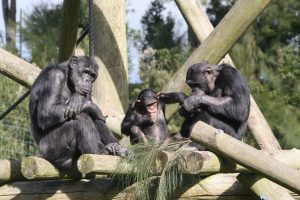
An interview with primatologist Frans de Waal was recently brought to my attention. De Waal, a prolific author who wrote extensively about his research on chimpanzees, is famous for having promulgated the concept of “alpha male.” In his book Chimpanzee Politics, he talked about this concept, and then Speaker of the House of Representatives, Newt Gingrich, recommended the book to new congressmen and women. But according to De Waal, the concept was miscomprehended and came to mean, as he explained in a TED lecture, that an alpha male “is basically a bully.”
Actually, says De Waal, alpha males are not necessarily the most aggressive or the strongest. For the most part, they rise to the top by forming coalitions with other males, and continue to cultivate their relationships with them once they reach the top position. The coalition helps them maintain their status and deter potential challengers.
However, a coalition of males is not enough to maintain the top post. Despite their physical inferiority, the females have a decisive role in the troop. To win their support, the alpha male pampers the females with food and other treats, and tickles their infants.
Interestingly, both the alpha male and alpha female play the role of peacekeepers — the male among the males, and the female among the females. When the alpha male comes to make peace between belligerent monkeys, he transcends consideration of coalition and acts as an objective peacemaker. The troop members recognize this and respect him for that.
Even more interesting, an alpha male will often assist an ailing or a sick member of the troop for no apparent reason. Even if he is not a member of his coalition and there seems to be no personal benefit in helping a weaker or a sick monkey, male or female, the alpha male will often share food, offer comfort, and assist in many other ways.
As a rule, the kinder the alpha male, the longer his reign. And when it is time to be replaced, he will not be mistreated. On the contrary, the troop will continue to respect him and assist him in his old age, a tribute to his kindness in his days at the throne.
If a bully becomes the alpha male, as it sometimes happens, he will rule just as long as his physical strength endures. When challenged, not only will the troop not support him, it will support his challenger. The end of a bullying alpha male will invariably be bitter and painful.
I am describing all this to show how similar we are. That is, if our society were as just and ethical as that of the chimpanzees, it would probably look something like this.
In the end, the desires of humans and the desires of primates are the same desires, the same thoughts and calculations. The difference lies in the intensity and sophistication, but the desires are all and all the same. Envy, passion, and power hunger all exist in humans as they exist in primates, though in the latter, they are less developed and not as sophisticated.
If we examine ourselves honestly, we will see that on the social level, we have not evolved more than they have. While we developed technology, they developed positive social characteristics that we have not. As a result, we have a technologically advanced society that uses technology against its own members.
There is a reason why this happens, a fundamental difference that makes it impossible for our society to become like that of the primates. The difference is that what they do instinctively, we must do consciously, or we will not be able to do it at all, as we can evidently see.
If we were meant to remain on the level of primates, there would be no point in becoming humans. We have been denied the instinct to build a positive and supportive society so that we would develop it of our own accord. In doing so, we would grasp the merits of such a society compared to its opposite, which is our current state. This, in turn, would make our understanding of human nature, and of nature as a whole, far deeper than any other created being can grasp.
Some may think that trying to care for one another is naive or unrealistic, but they do not understand that by doing so, we are building within us the structure that exists outside of us. We study nature by simulating its modus operandi, and since nature works in a manner of reciprocity and care, as the chimpanzee society demonstrates, the only way that we will understand nature is by building a similar society of our own accord and through our own efforts.
Nature, in a sense, has made us blind so we would develop our vision by ourselves. We, for our blindness and selfishness, think that the whole world is as blind and selfish as we are. But if we strive to act the way animals act naturally, we will discover nature’s true, caring disposition.
[297882]
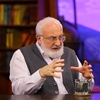 Question: The symbol of the exodus from Egypt is matzah. Why is it necessary to use matzah during Passover?
Question: The symbol of the exodus from Egypt is matzah. Why is it necessary to use matzah during Passover?
Answer: Matzah is unleavened bread, that is, bread that is prepared in a special way with the minimum amount of water necessary to make a starter. Then it is baked in a simple way on coals or in a hot frying pan, it does not matter what.
Matzah is baked in memory of exiting Egypt and symbolizes our quick transition from the desire to receive to the desire to bestow. It happens unexpectedly, with a leap, in the most allegedly unsuitable place and time for a person.
An accumulating process takes place, and a person exits the control of egoism. This is called the exodus from Egypt.
Question: So, is a person not expecting this exit?
Answer: He expects it all the time, but does not know that it is so close. When it really happens to him, he does not understand how it suddenly happened. However, someday it will happen to everyone.
[297628]
From KabTV’s “Spiritual States” 4/19/22
Related Material:
Unleavened Bread
Pesach, Matzah, And Bitter Herb
Matzah Is Our First Bread Of Poverty
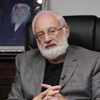 Question: In our world, it is believed that the freedom of a country is political independence, elections, the absence of subordination and dependence of the people on some other country. And by what criteria can a Kabbalist say this country [Israel] is independent?
Question: In our world, it is believed that the freedom of a country is political independence, elections, the absence of subordination and dependence of the people on some other country. And by what criteria can a Kabbalist say this country [Israel] is independent?
Answer: If we talk about Israel, then by spiritual definition we are not a country and not a nation. So it’s too early for us to talk about it. We can only give approximate definitions to this and analyze why we still do not satisfy true spiritual concepts of what a country, a nation, a state, a family, and so on are.
There are very clear definitions here that relate specifically to us and not to the rest of the nations of the world. Baal HaSulam examines this in articles about the last generation.
In particular, in the newspaper The Nation, published in 1940, he writes: It is a shame to admit that one of the most precious merits we have lost during the exile, and the most important of them, is the loss of the awareness of the nationality, meaning that natural feeling that connects and sustains each and every nation. The threads of love that connect the nation, which are so natural and primitive in all the nations, have become degenerated and detached from our hearts, and they are gone.
The fact is that other nations have a sense of dependence, a sense of community, while the Jews practically do not. They are characterized by increased egoism, remoteness from each other, and a willingness to get closer to each other only in times of special catastrophes. And so on.
Question: And what is the national identity? What is he talking about?
Answer: If we take, for example, any nation and start looking for the spiritual roots in it, we will see that almost all nations have a craving for self-consciousness, and the Jews may have the opposite picture.
This comes from the fact that the Jews are the nation of the idea, which was gathered by Abraham from different clans on the basis of unity.
[297607]
From KabTV’s “Spiritual States” 4/26/22
Related Material:
Independence Day 2022
Israel By Letter And In Spirit
A Wasted Foundation
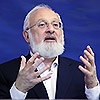 Comment: When I read the story about the Exodus from Egypt, I could not understand why the Creator was constantly hardening the Pharaoh’s heart. And then I found an explanation in the sources that the hardening of the heart is necessary for a person to have a real desire for truth.
Comment: When I read the story about the Exodus from Egypt, I could not understand why the Creator was constantly hardening the Pharaoh’s heart. And then I found an explanation in the sources that the hardening of the heart is necessary for a person to have a real desire for truth.
My Response: The necessity for the Creator’s help!
A person still thinks: if I do not have enough time now, then some other time when I am smarter, stronger, and so on. Thus, he comes to realize that there is nothing in him and there cannot be anything for him to defeat the Pharaoh. And then he needs the help of the Creator and comes to prayer.
Question: Your teacher Rabash wrote that the hardening of the heart was necessary so that there would be an opportunity for prayer. Is the prayer needed not by the Creator but by the person?
Answer: Of course. What does the Creator even need? A person, on the other hand, needs the prayer so that he has a desire to receive help from the Creator.
Prayer is the final action on the part of a person when he already has everything necessary to turn to the Creator correctly.
Question: But where is the point that can be pressed to make prayer appear?
Answer: You look for it and press. No one will find it but you.
[297218]
From KabTV’s “Spiritual States” 4/14/22
Related Material:
What To Ask The Creator
What And How To Ask The Creator
How Can We Ask The Creator For Anything?